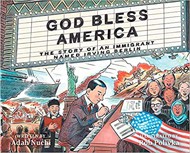Nina Howe has performed a valuable act of filial piety by bringing to press this generous collection of essays by her father, Irving Howe. Arguably the most important public intellectual of his generation, Howe came to prominence as a proponent of socialism in the years immediately following World War II and continued to write on political, literary, and cultural subjects until his death in 1993 at the age of 73.
The essays in A Voice Still Heard reflect the astonishing range of Howe’s interests and achievements. Included are such landmark pieces on politics and culture as “This Age of Conformity,” “New Styles in ‘Leftism,’” “The New York Intellectuals,” and “Two Cheers for Utopia”; Howe’s immensely influential appreciation of American poet Edward Arlington Robinson; his valuable introduction to a selection of stories by Sholom Aleichem; short and acute pieces on Orwell, Dickens, Tolstoy, Sarah Orne Jewett; and perhaps the most astute essay ever written the problem of writing about the Holocaust.
Although the title of the volume suggests that Howe’s work is of enduring value and unlikely to grow obsolete, many of the essays are marked by a musty, if somewhat charming, evocation of a bygone age and the crucial assumptions that undergirded it. Howe came of age in an era when liberalism was regarded by wide consensus as the sole legitimate political philosophy in America, political controversy consisted mostly of theoretical arguments among proponents of different factions of the left, and the study of popular culture was in its infancy and accordingly treated as a juvenile pastime. (“A critic who contributes a nuance to Dostoevsky criticism is working within a structured tradition,” Howe asserts, “while one who throws off a clever observation about Little Orphan Annie is simply showing off what he has done.”) In this case, the more things change, the more they change.
Howe’s political essays also highlight that while he and his colleagues were aware that they were a breed apart, in more ways than one, their enterprise was not geared to effecting actual change; indeed, they often seemed to take pride in their political irrelevance. The title of an otherwise excellent essay — “Why Has Socialism Failed in America?” — hints at the extent to which Howe could conduct himself on too theoretical a plane; one might as well ask why your child’s Little League team failed to defeat the San Francisco Giants in the 2014 World Series. The controversies embedded in the pages of Dissent, Commentary, The Partisan Review, and other small publications were largely conducted and attended to by a self-contained coterie that seemed too caught up in its own pilpul to dirty its hands with practical politics.
Meanwhile, their counterparts on the right were actively building political institutions that would transform American public discourse. Howe acutely describes the early stages of this phenomenon in the prescient essay “Reaganism: The Spirit of the Times,” which appeared in 1986. As in his literary essays, and his magisterial study The World of Our Fathers (which is not excerpted in this collection), Howe proves himself an extraordinarily effective observer and diagnostician, but he remained an observer. While he effectively decried the activism of the New Left in the 1960s as counterproductive, he never put forward a practical program that would advance his most deeply held beliefs and blunt the force of those who sought — with considerable success — to undermine them.





